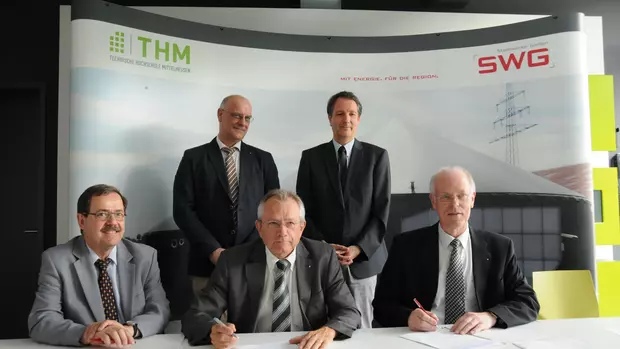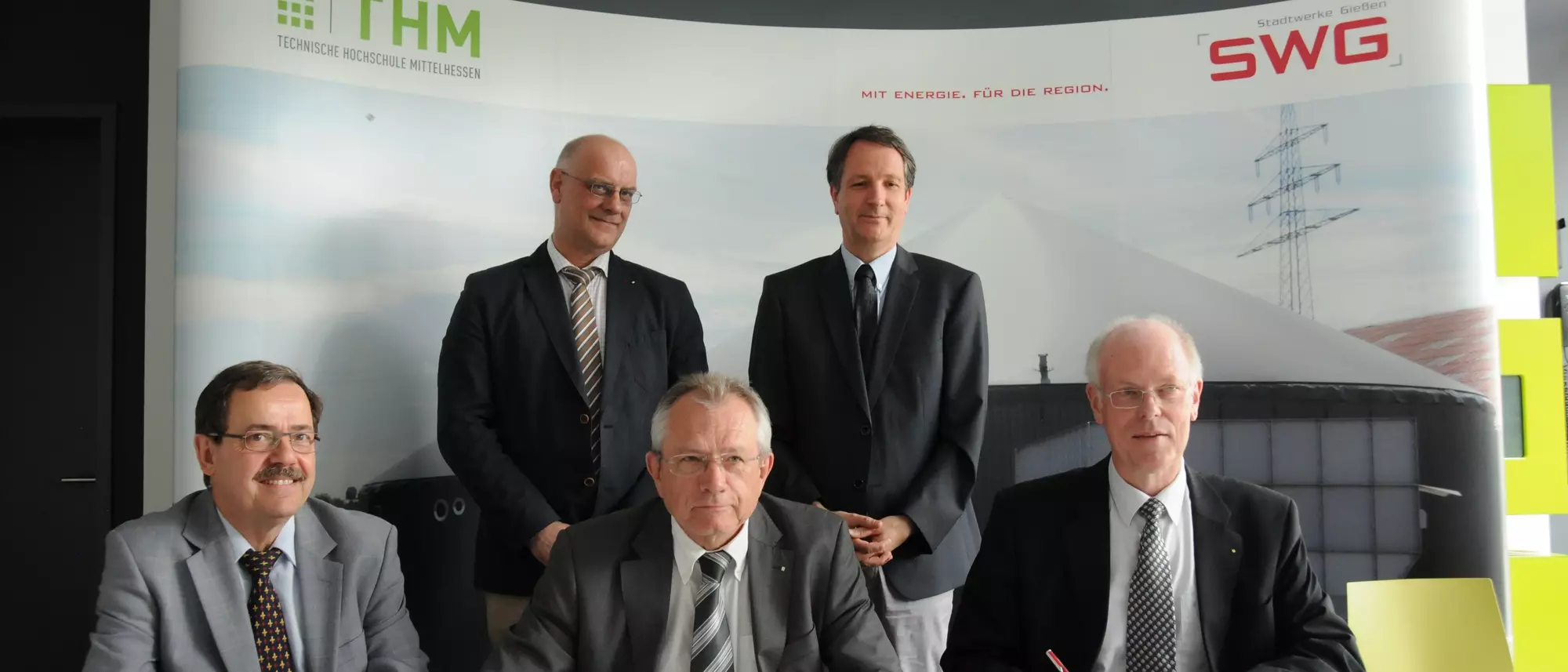
Stadtwerke Gießen and the Technische Hochschule Mittelhessen have entered into a long-term cooperation agreement. Both partners are contributing their expertise to drive forward the energy transition in the region.
The energy transition is one of the biggest challenges currently facing us. In order to master them, experts from the energy industry and science, among others, need to work closely together - for example in collaborations such as the one agreed between Stadtwerke Gießen (SWG) and the Technische Hochschule Mittelhessen (THM) on 21 June.
"As a municipal company with strong regional roots, we have been pursuing a resource-conserving energy concept for years. The fact that we have found a local partner with extensive expertise in energy technology on the research side is an ideal constellation," emphasised Manfred Siekmann, CEO of SWG, after signing the cooperation agreement. His fellow board member Reinhard Paul assured: "The long-term co-operation between SWG and THM offers the opportunity to combine sound knowledge from research and practice. A step on the way to pioneering ideas and solutions." The exchange between the university and municipal utilities has already demonstrated how this can work in the course of individual selective projects over the past few years - for example in the design of the biogas plant in Großen Buseck.
Fields of activity mapped out
"With regard to our three performance levels - academic teaching, research and continuing education - we expect to make qualitative progress through the institutionalised cooperation with Stadtwerke Gießen," commented Professor Dr Günther Grabatin, President of THM. He explained: "Both our range of courses and our research projects are characterised by their high practical relevance. In the field of energy technology, we provide prospective engineers with application-oriented qualifications in several degree programmes. The Technische Hochschule Mittelhessen has an interdisciplinary competence centre for energy and environmental systems engineering, which creates the structural basis for increased research and further education activities. In order to be able to handle this extensive field of activity even more efficiently in future, we have established the new Coordination Centre for Energy Technology at the President's Office. In THM, SWG has gained a partner that attaches great importance to energy issues."
Among other things, SWG intends to offer topics for student projects and theses, as it has done in the past. Another item on the agenda for the collaboration is for the municipal utilities to provide the university with anonymised load profile data for electricity and heat for research purposes. The energy company also wants to support THM in the construction of pilot plants and organise regular excursions to the energy technology facilities. In return, the university will train SWG employees on special energy-related topics as required and provide contacts from science and research. The cooperation also serves to help each other with the preparation and organisation of conferences and events.
Tackling joint projects
In addition to the general cooperation, SWG and THM have already set their sights on the first specific projects in the city of Giessen and the Central Hesse region. "We are not focussing on a specific field, but are tackling the entire range of topics related to the energy transition," assures Reinhard Paul. These include, for example, the increased demands on the grid due to an increasingly decentralised energy supply, the optimisation of existing plants - including biogas plants or the Giessen sewage treatment plant, the climate-friendly mobility of the future and the storage of energy from renewable sources. The partners also want to analyse which renewable sources have the greatest potential at which locations in the region - also from an economic point of view. Manfred Siekmann explained: "The energy market is characterised by increasing complexity. Unlike a few years ago, a mix of energy technology, economic, political and social aspects play a role. The combined expertise of THM and SWG contributes to examining energy concepts at all levels and optimising them accordingly."

